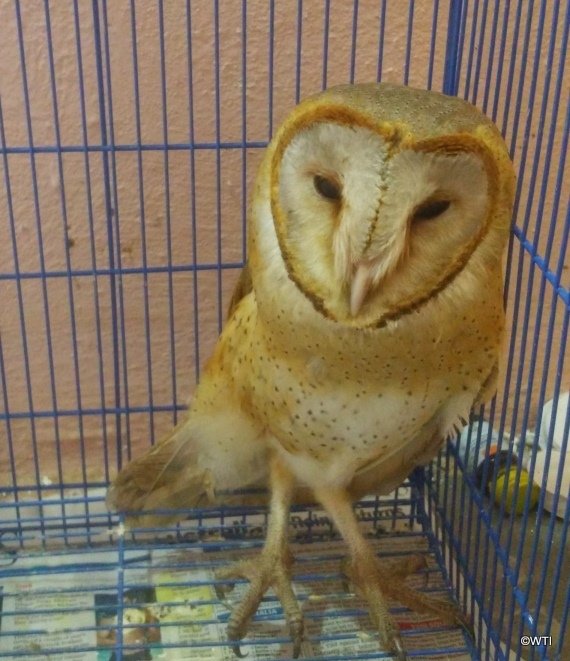By Snehaa Sundaram | Asst. Programme Officer-Wild Aid Division
The goal of wildlife rehabilitation is to provide professional care to sick, injured, and orphaned wild animals so ultimately they can be returned to their natural habitat. WTI with the generous support of its donors, has been able to provide wildlife rehabilitation and rescue for a wide range of species in Similipal Biosphere Reserve (SBR), Odisha along with State Forest Department. One of the cases involved two injured barn owls in need of immediate veterinary support. They were rescued following a quick response by our team; later the injured barn owls were brought to WTI’s Veterinary care center at SBR, Odisha and are going through critical treatment.
Another unfortunate case that our team attended to was a case of Sambar deer that had been shot by an arrow by local poachers. Incidentally our team got to the site on time and were able to rescue the deer from the hands of the poachers. Even after intensive care and treatment the deer succumbed to its injuries.
WTI with the support of GlobalGiving is working to empower Mobile Veterinary Units in key areas for immediate assistance on emergency to save lives of these wild animals in distress.
Human- animal conflict is on a rise in our country because of exploding human population and infrastructure meanwhile reptiles are the most affected by this, the Indian rat snake which is often mistaken to be cobra often falls prey in the hands of humans. One rat snake and one Russell’s viper, which is one of the big four venomous snakes in India, were rescued from human habitations and successfully released back in the wild. Most recent of cases has been an Indian palm civet which was also rescued is under care at the Mobile Veterinary Unit.
In addition, the MVS continues to provide treatment to captive elephants of the region. The unit also regularly conducts trainings for frontline staff.
Project reports on GlobalGiving are posted directly to globalgiving.org by Project Leaders as they are completed, generally every 3-4 months. To protect the integrity of these documents, GlobalGiving does not alter them; therefore you may find some language or formatting issues.
If you donate to this project or have donated to this project, you can receive an email when this project posts a report. You can also subscribe for reports without donating.
Support this important cause by creating a personalized fundraising page.
Start a Fundraiser